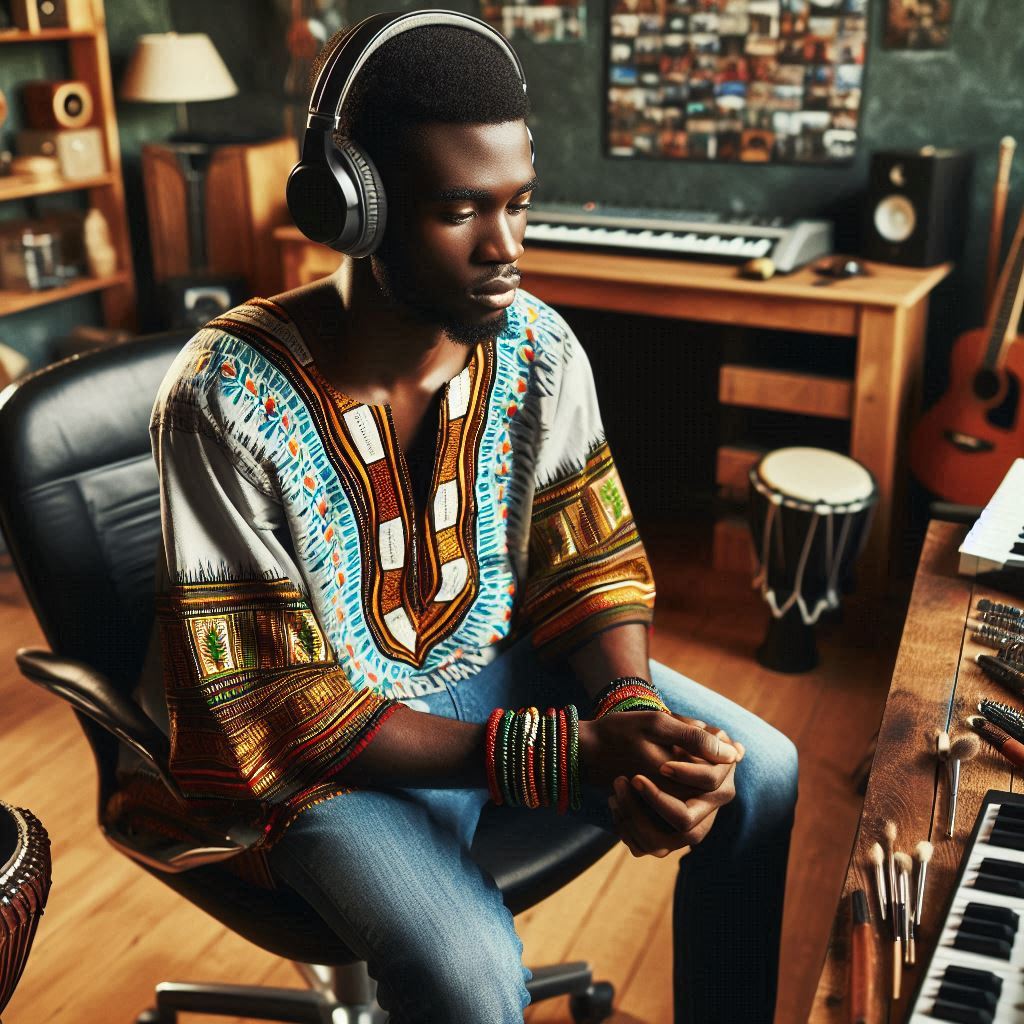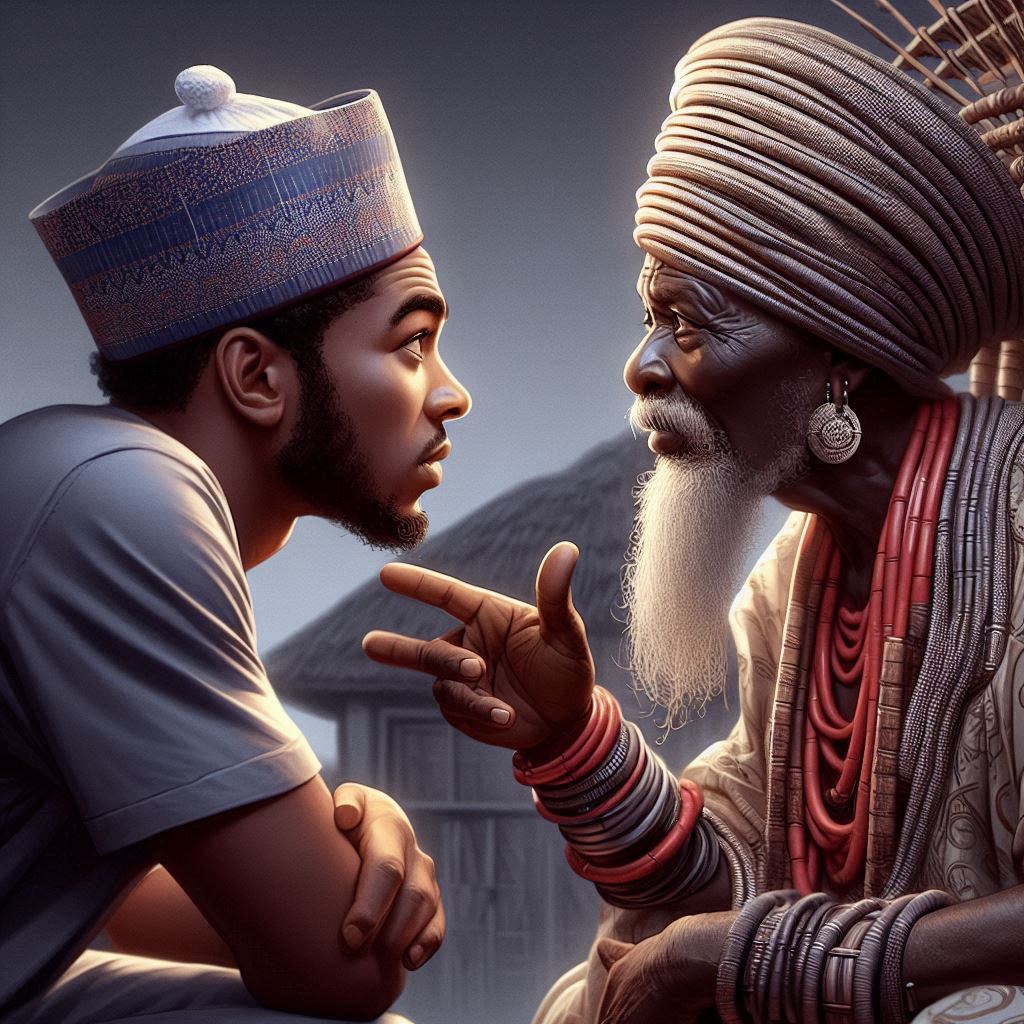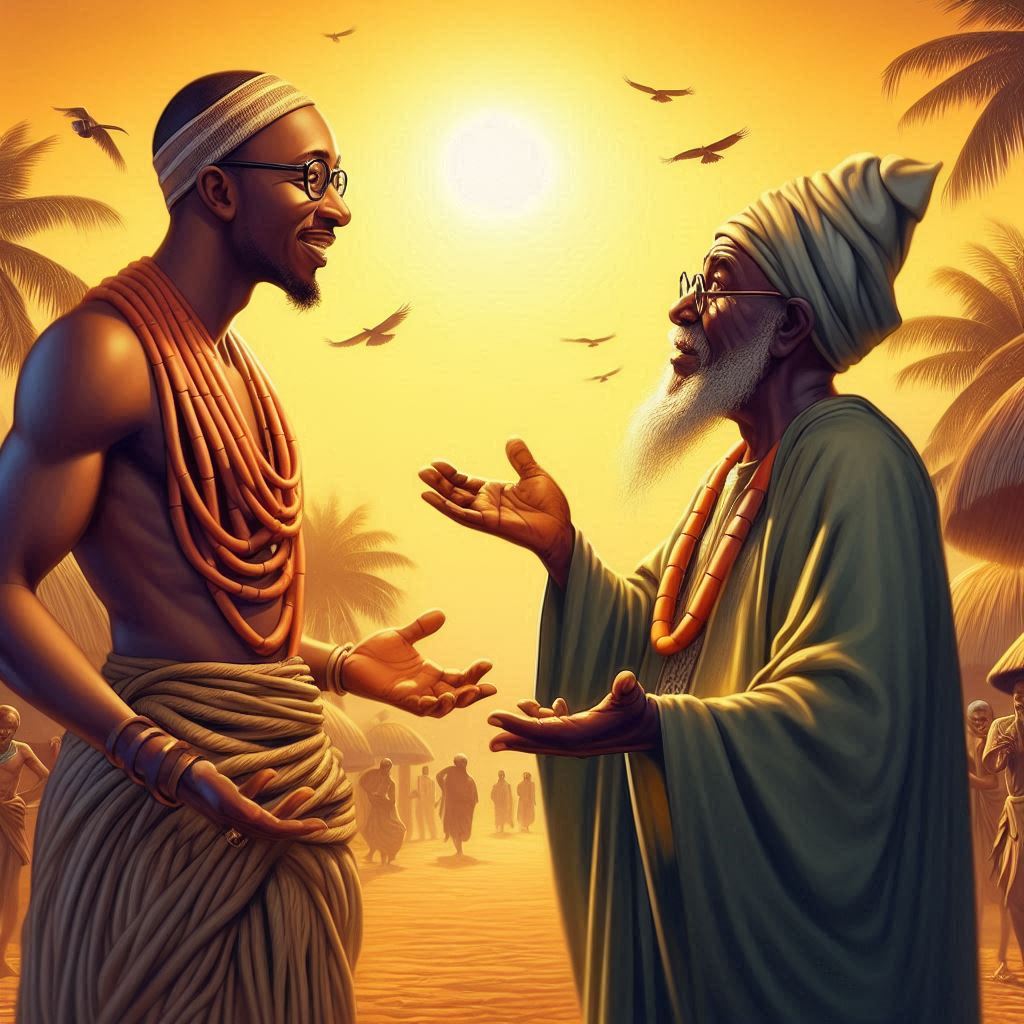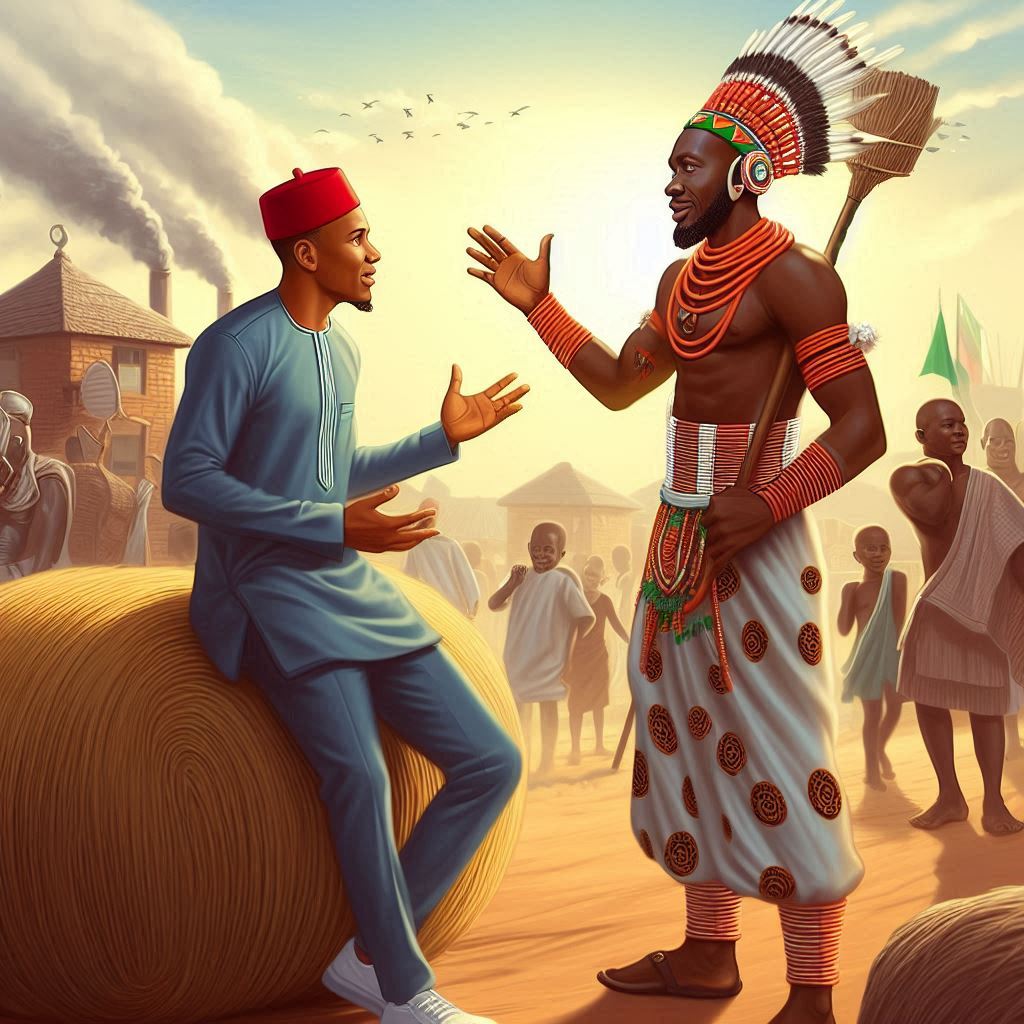Introduction
Brief overview of the importance of Nigerian languages in media and entertainment.
Mention of how these languages play a crucial role in preserving cultural heritage and promoting diversity.
Preservation of Cultural Heritage
Nigerian languages in media and entertainment serve as a platform for preserving traditional beliefs and practices.
Through movies, music, and literature in native languages, the rich cultural heritage of Nigeria is celebrated.
Promoting Diversity
Nigerian languages in media and entertainment contribute to promoting diversity by showcasing the country’s linguistic variety.
By using different languages in films, TV shows, and music, Nigeria highlights its diverse cultural tapestry.
Empowerment and Representation
Utilizing Nigerian languages in media empowers native speakers and provides them with a sense of representation.
Seeing and hearing their languages in mainstream entertainment validates the importance of their cultural identity.
Global Reach and Recognition
By incorporating Nigerian languages in media and entertainment, the country gains international visibility and recognition.
International audiences are exposed to the beauty and richness of Nigerian languages, fostering global appreciation.
The use of Nigerian languages in music
Music is a universal language that has the power to transcend barriers and bring people together. In Nigeria, where over 500 languages are spoken, music plays a significant role in promoting cultural diversity and unity.
Nigerian musicians have creatively incorporated their native languages into their songs, showcasing the beauty and richness of the country’s linguistic heritage.
Exploration of how Nigerian musicians incorporate local languages into their songs
Nigerian artists have embraced the use of local languages in their music as a way to express their cultural identity and connect with their roots.
By infusing native dialects such as Yoruba, Igbo, and Hausa into their songs, these musicians are able to appeal to a wider audience and celebrate the linguistic diversity of Nigeria.
Examples of popular Nigerian artists who sing in their native languages
- Fela Kuti – Known as the pioneer of Afrobeat music, Fela Kuti sang in pidgin English and Yoruba, using his music as a tool for social and political activism.
- Flavour N’abania – A highlife musician from the eastern part of Nigeria, Flavour sings predominantly in Igbo, showcasing the traditional sounds and rhythms of his culture.
- Asa – A soulful singer-songwriter, Asa sings in a blend of Yoruba, English, and French, creating a unique fusion of languages in her music.
How music in different Nigerian languages helps to connect with diverse audiences:
Music in various Nigerian languages helps to bridge the gap between different ethnic groups and foster a sense of inclusivity and unity.
By singing in local dialects, artists are able to reach out to fans from different parts of the country who may not understand English, the official language of Nigeria.
This inclusivity not only promotes cultural exchange but also encourages pride in one’s cultural heritage.
Therefore, the use of Nigerian languages in music is a testament to the country’s rich cultural tapestry and the ability of music to transcend linguistic boundaries.
Nigerian artists continue to inspire and unite people through their songs, showcasing the beauty and diversity of Nigerian languages for the world to appreciate.
Read: The Role of Sociology in Nigerian Social Policy
Nigerian languages in Nollywood movies
Understanding the use of Nigerian languages in Nollywood movies
One of the distinctive features of Nollywood movies is the use of Nigerian languages alongside English. This practice reflects the linguistic diversity of Nigeria and adds authenticity to the storytelling.
Analysis of how Nollywood films use a mix of English and local languages
Nollywood movies often incorporate a mix of English and local languages such as Yoruba, Hausa, Igbo, and Pidgin English. This blend of languages helps to reach a wider audience within Nigeria and beyond.
Examination of the impact of using Nigerian languages on the authenticity of the storylines
The use of Nigerian languages in Nollywood movies enhances the authenticity of the storylines by accurately representing the cultural contexts in which the plots unfold. It creates a sense of realism and relatability for the viewers.
Mention of how this practice contributes to the promotion of cultural pride
By showcasing Nigerian languages in Nollywood films, the industry plays a crucial role in promoting cultural pride and preserving the linguistic heritage of Nigeria.
It fosters a sense of identity and belonging among Nigerians both at home and in the diaspora.
Essentially, the use of Nigerian languages in Nollywood movies is not only a creative choice but also a powerful tool for cultural representation and promotion.
It enriches the storytelling experience and contributes to the celebration of Nigeria’s linguistic diversity.
Read: Challenges Facing Sociology Education in Nigeria
The role of Nigerian languages in comedy and stand-up shows
Comedy is a universal language that transcends cultural barriers and connects people through humor. In Nigeria, comedians play a vital role in using local languages, including pidgin English, to entertain and engage audiences.
How comedians use pidgin English and other local languages in their jokes
Nigerian comedians have mastered the art of incorporating pidgin English, Yoruba, Igbo, and other local languages into their jokes. This linguistic diversity adds a unique flavor to their performances and resonates with audiences on a personal level.
Showcase of how these comedians connect with audiences from various ethnic backgrounds
By using Nigerian languages in their comedy routines, comedians are able to connect with audiences from different ethnic backgrounds.
Whether it’s a hilarious skit in Yoruba or a witty punchline in Hausa, these comedians bridge cultural divides and create a shared experience of laughter.
How comedy in Nigerian languages fosters a sense of national unity
Comedy in Nigerian languages serves as a unifying force that brings people together, regardless of their linguistic or cultural backgrounds.
When audiences laugh together at a joke told in their mother tongue, they experience a sense of unity and shared identity as Nigerians.
Generally, Nigerian comedians play a crucial role in using indigenous languages to entertain, connect, and unite audiences. Through their humor and linguistic diversity, they celebrate the rich cultural tapestry of Nigeria and promote national unity.
Read: Career Opportunities for Sociology Graduates in Nigeria
The influence of Nigerian languages in social media and internet content
The Impact of Nigerian Languages on Social Media and Internet Content
The use of Nigerian languages in social media and internet content has significantly grown in recent years. Influencers and content creators have started incorporating local languages in their posts to connect with a wider audience.
This trend has led to a more inclusive online space where linguistic diversity is celebrated.
One of the key reasons for this shift is the desire to reach out to a broader demographic. By using Nigerian languages, content creators can engage with followers who may not be fluent in English.
This allows them to connect with a more diverse audience and create a sense of belonging for people from different linguistic backgrounds.
Moreover, the use of Nigerian languages adds a unique cultural element to social media content. It helps in promoting the rich cultural heritage of Nigeria and showcasing the beauty of its diverse linguistic landscape.
This, in turn, fosters a sense of pride and appreciation for local languages among the online community.
Examples of viral videos and memes that feature Nigerian languages
In recent years, there have been numerous viral videos and memes that have gained immense popularity due to the use of Nigerian languages. These posts not only entertain but also educate people about the linguistic richness of Nigeria.
They serve as a platform for spreading awareness about the importance of preserving and promoting indigenous languages.
Analysis of how social media platforms have become a space for celebrating linguistic diversity
Social media platforms such as Twitter, Instagram, and TikTok have become hubs for celebrating linguistic diversity through the use of Nigerian languages.
Users from different parts of the world are exposed to the beauty of these languages through engaging content that goes beyond traditional communication barriers.
Content creators who regularly use Nigerian languages in their posts have garnered a significant following and influence on social media.
They have become cultural ambassadors who bridge the gap between different linguistic communities and foster a sense of unity through language. This showcases the power of language in bringing people together regardless of their backgrounds.
Overall, the influence of Nigerian languages in social media and internet content is a testament to the vibrant linguistic tapestry of Nigeria.
It highlights the importance of preserving and celebrating indigenous languages in a digital age where connectivity knows no boundaries.
As we move forward, it is essential to continue promoting linguistic diversity and creating an inclusive online space where all languages are valued and respected.
Read: Sociology Departments in Nigerian Universities

Challenges faced in promoting Nigerian languages in media
Identification of obstacles
Limited access to resources poses a significant challenge in promoting Nigerian languages in the media.
Media organizations may lack the necessary funding to support content creation in indigenous languages.
Additionally, there is a shortage of trained professionals proficient in Nigerian languages who can work in the media industry.
This scarcity often leads to a reliance on English, further marginalizing indigenous languages.
Institutional support is another crucial factor in the promotion of Nigerian languages in the media.
Without the backing of government bodies or educational institutions, efforts to incorporate indigenous languages into mainstream media platforms may face significant obstacles.
Lack of infrastructure and policies supporting linguistic diversity can hinder the visibility and accessibility of content in Nigerian languages.
The dominance of English in media poses a considerable challenge to the promotion of Nigerian languages.
English is the primary language used in most mainstream media outlets, leading to a marginalization of indigenous languages.
This dominance can perpetuate linguistic inequality and hinder the representation of diverse linguistic communities in the media landscape.
Furthermore, the preference for English content by both audiences and advertisers can create a barrier to the inclusion of Nigerian languages in media platforms.
The marginalization of Nigerian languages in media can have far-reaching consequences for linguistic diversity and cultural preservation.
Indigenous languages play a vital role in preserving cultural heritage and connecting communities to their roots.
Without adequate representation in the media, Nigerian languages risk facing extinction or becoming overshadowed by dominant language narratives.
Suggestions for promoting linguistic diversity in the media
- Provide funding and resources to support content creation in Nigerian languages.
- Offer training programs for media professionals to enhance proficiency in indigenous languages.
- Establish partnerships with government agencies and educational institutions to promote linguistic diversity.
- Include Nigerian languages in media regulations and policies to ensure equitable representation.
- Encourage the production and consumption of content in indigenous languages through incentives and subsidies.
Most importantly, promoting Nigerian languages in the media requires a multi-faceted approach that addresses challenges related to access to resources, institutional support, and the dominance of English.
By implementing strategies to overcome these obstacles and fostering linguistic diversity in media platforms, we can celebrate the richness of Nigerian languages and preserve cultural heritage for future generations.
The future of Nigerian languages in media and entertainment
Evolution of Nigerian Languages in Media and Entertainment
In recent years, there has been a noticeable resurgence of Nigerian languages in media and entertainment. With the advent of digital technologies, the use of local languages has become easier and more accessible.
This trend is expected to continue as the younger generation embraces their cultural roots and seeks authentic representation in the media.
The rise of social media platforms and streaming services has provided a platform for Nigerian languages to reach a global audience.
This has opened up new opportunities for content creators to produce diverse and inclusive work that reflects the rich linguistic diversity of Nigeria.
As more people around the world become interested in Nigerian culture, the demand for content in local languages is expected to grow.
Call to action for stakeholders to support and promote the inclusion of Nigerian languages in media and entertainment
As we look to the future, it is crucial for stakeholders in the media and entertainment industry to support and promote the inclusion of Nigerian languages.
This can be done through funding initiatives, training programs, and collaborations with local communities.
By investing in the preservation and promotion of Nigerian languages, we can ensure that these languages continue to thrive and evolve in the digital age.
Transform Your Career with Expert Guidance
Get personalized mentorship consulting that’s tailored to your unique path. Our expert advice is actionable and exclusive.
Get StartedIn conclusion, the future of Nigerian languages in media and entertainment looks promising.
With the right support and resources, we can expect to see a flourishing ecosystem of content in local languages that resonates with both local and international audiences.
It is time for all stakeholders to come together and work towards making this vision a reality.
Conclusion
Nigerian languages play a crucial role in media and entertainment by preserving cultural heritage.
These languages help to communicate stories, traditions, and values unique to Nigeria. Incorporating Nigerian languages in music, film, and literature promotes cultural diversity.
It allows Nigerian artists to express themselves authentically and connect with their audience.
Preservation of Cultural Diversity and National Unity
Nigerian languages contribute to the rich tapestry of Nigeria’s diverse cultural landscape.
By showcasing these languages in media, it fosters a sense of pride and unity among Nigerians It helps break down barriers and encourages mutual respect among different ethnic groups.
Embracing linguistic diversity promotes a more inclusive society and strengthens national identity.
Continued Efforts to Preserve and Promote Nigerian Languages
It is essential to continue promoting Nigerian languages in the media to prevent language loss.
Initiatives like language education programs and local content regulations can help preserve these languages. Collaborations between media stakeholders and linguistic experts can further enhance the visibility of Nigerian languages.
By supporting local content creators who use Nigerian languages, we can ensure their sustainability in the media industry.
Recap of the importance of Nigerian languages in media and entertainment. Reinforcement of how these languages contribute to cultural diversity and national unity.
Encouragement for continued efforts to preserve and promote Nigerian languages in the media landscape.




